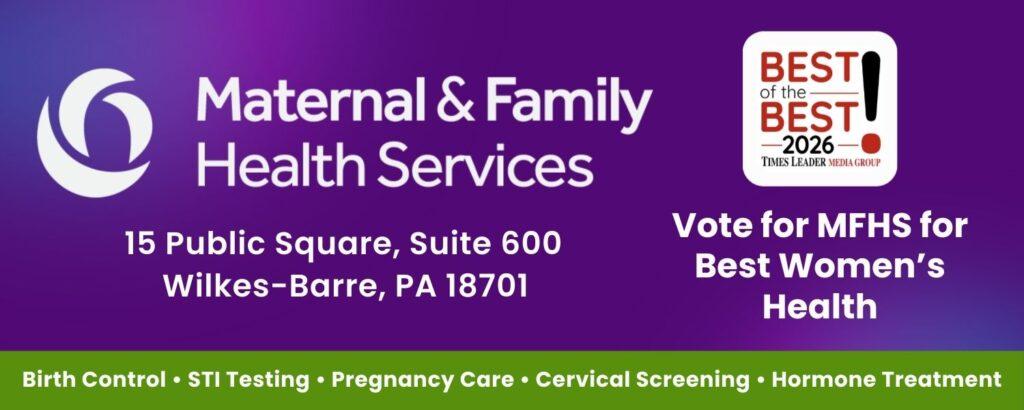Through a partnership with your school, we are helping to open conversations about health and development, including menstruation — or getting a period. Along with education, we’ve provided hygiene supplies to your school’s nurse. Any menstruating student has access to these items while in school and never has to go without personal hygiene products.
On this page, we will share some frequently asked questions about menstruation, personal hygiene supplies, and where to find more info about this important, natural change that happens within the wide range of time between elementary school and high school.
Let’s get started.
Most people associate Maternal & Family Health Services with the Women, Infants, and Children (WIC) Nutrition Program, but there’s much more! As a local health and human service organization, we meet the needs of the community through not only quality care, but also through information and education.
Although most people understand what happens when a person starts to menstruate and they know how to deal with it each month, it’s easy to forget that getting a period is the body’s way of saying someone can become pregnant. That’s a very big deal. Considering that young people can begin menstruating as early as elementary school, we know that although Mother Nature indicates their body can carry a baby, they are not planning a pregnancy at that point in their lives. Understanding what getting a period means, as well as taking steps to educate your child about their changing bodies and choices over the next few years is so important.
We’re here to help you open these important conversations at home in a way that feels right for you.
Here are some questions and answers you might want to explore at home with your child(ren).
What does it mean to get a period?
Also known as menstruation, getting a period means that your body is changing and is capable of carrying a baby. These changes are completely natural and are driven by hormones. Each month, on a cycle, if the body is not pregnant, the lining of the uterus breaks down and bleeds. It does not hurt.
Some people use different terms for menstruation. You might hear people call it “their monthly,” “a visit from Aunt Flo,” “that time of the month,” or “on the rag.” You’ll hear lots of creative terms for menstruation, and it’s important to remember it is a natural process that is nothing to be embarrassed about.
When will it start? Will it keep happening? How often?
No one can tell exactly when a first period will occur. In the beginning, a period may not be regular, but most periods arrive around once a month — or every 28 days. It can last anywhere from 2 to 5 days.
It’s helpful to keep track of when your period comes so you’re always prepared. You might also want to note which days you notice a lighter or heavier flow. This will help you plan. Using a simple paper calendar is all it takes!
PS — If you need any period supplies for the summer months, be sure to ask your school nurse before you leave for summer break!
How does it feel?
Before you get a period, you might notice some cramping and belly pains, and you may even feel a bit more emotional or sensitive. This is all normal!
While you might want to skip gym class or sports, don’t! Exercise and moving your body are actually very beneficial during your period.
What should I know about personal hygiene products?
You might have heard of pads, tampons, or menstrual cups. These products will help prevent blood from leaking through your underwear or onto your clothes. You may notice a different smell when you get a period. That’s totally normal. Making sure to change your pad, tampon, or menstrual cup often is important. Lots of students find it works well to change their pad, tampon, or menstrual cup between every few classes or at lunchtime.
If you need extra personal hygient supplies, you can ask your school nurse.
What now?
Getting a period, or menstruating, is a completely normal and natural change. Anyone with a uterus can get a period as early as 8 years old or as late as the high school years.
Whenever you experience these changes, it is the right time for you. Remember, getting a period is the body’s way of saying you can become pregnant, and that’s a very big deal.
Think about a trusted adult in your life you can talk to if you have additional questions. People like parents, caregivers, school nurses, teachers, counselors, or coaches are usually good places to start. Every adult has gone through body changes at some point in their life and there are no silly questions. If you’re curious, unsure, or confused, be sure to ask someone you trust so you can get valid information.
Here are some helpful resources to keep the conversation going:
Preparing your child for menstruation from Mayo Clinic | “Wonder what to tell your child about periods? Here’s help covering the bases.” Click to read the article.
Concerns Girls Have About Puberty from healthychildren.org (from the American Academy of Pediatrics) | “Girls have pubertal concerns and worries, too, including: breast development and menstruation.” Click to read it now.

